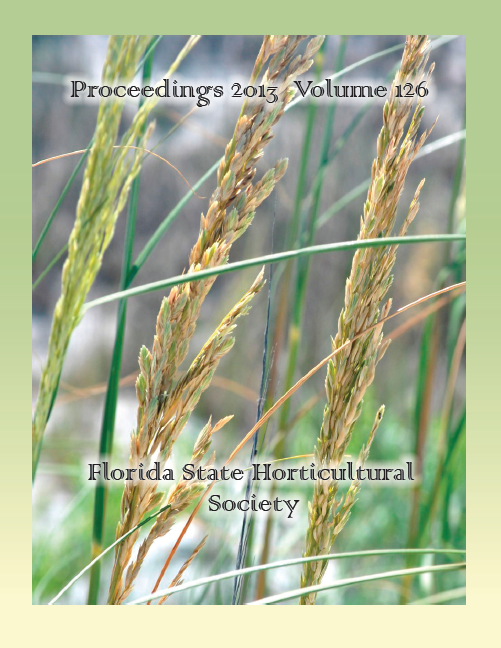Published 2013-12-01
Keywords
- Solanum lycopersicum,
- water management,
- wetting agents,
- cultural practices
Abstract
A study was conducted to determine the potential of the soil surfactant Integrate (triblock co-polymer 61% and glucoethers 19%) for reducing required drip-irrigation volumes on tomato (Solanum lycopersicum) in terms of yield and soil moisture. Integrate is a liquid polymer used to improve soil wetting and reduce surface tension. Drip-irrigation programs were 60%, 80%, and 100% of the potential evapotranspiration (ET0) (total volume applied three times per day in three equal amounts), whereas Integrate levels were: a) none (control); b) 0.25 gal/acre applied 2 weeks before transplanting plus 0.25 gal/acre weekly from week 1 to 6; c) 0.5 gal/acre at applied 2 weeks before transplanting plus 0.25 gal/acre weekly from week 1 to 6; and d) 1.0 gal/acre applied 2 weeks before transplanting plus 0.25 gal/acre weekly from week 1 to 6. Significant irrigation program by Integrate treatment interactions were observed for early extra-large and total marketable fruit weight. The highest early fruit weights were achieved with 100% ET0 regardless of Integrate application, and with 80% ET0 plus any of the Integrate application programs. There were significant increases in yield and in soil volumetric moisture content at the 5-inch depth when Integrate was added to the 80% ET0 treatment, which suggests that the polymer improved water retention in the soil.

